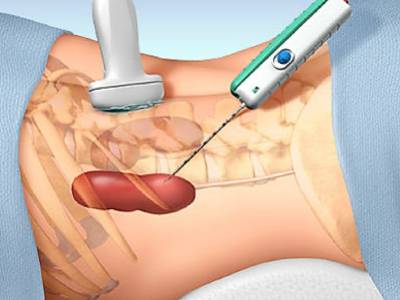Kidney Biopsies
- Home
- / Dr. Virendra Chauhan

Kidney Biopsies
Indications for Kidney Biopsy
Diagnosis of Kidney Diseases: To identify the underlying cause of kidney dysfunction, such as glomerulonephritis, nephrotic syndrome, or other types of kidney disease.
Assessment of Kidney Transplant Rejection: To evaluate if a transplanted kidney is being rejected by the recipient's immune system.
Monitoring Disease Progression: To assess the severity and progression of chronic kidney diseases, such as chronic glomerulonephritis or diabetic nephropathy.
Procedure
Preparation: The patient may undergo blood tests and imaging studies to assess kidney function and determine the biopsy site.
Anesthesia: Local anesthesia is typically used to numb the skin and tissue around the biopsy site.
Ultrasound or CT Guidance: The doctor may use imaging techniques to locate the best site for biopsy, often targeting the kidney's outer edge where tissue samples can be safely obtained.
Needle Biopsy: A special biopsy needle is inserted through the skin and into the kidney to collect a tiny sample of tissue. The needle is quickly withdrawn after the sample is obtained.
Post-procedure Care: Patients are monitored closely for several hours after the procedure to check for any signs of complications, such as bleeding or pain. Bed rest and observation are typically advised for a few hours post-biopsy.
Aftercare
Monitoring: Regular monitoring of vital signs and kidney function after the procedure.
Rest: Advised to avoid strenuous activity and heavy lifting for a few days post-biopsy.
Benefits
Accurate Diagnosis: Provides crucial information needed to diagnose and treat kidney diseases effectively.
Guides Treatment: Helps tailor treatment plans based on specific findings from the biopsy.
Kidney biopsies are valuable diagnostic tools in nephrology, offering insights into the underlying causes of kidney disease and guiding treatment decisions to optimize patient outcomes.